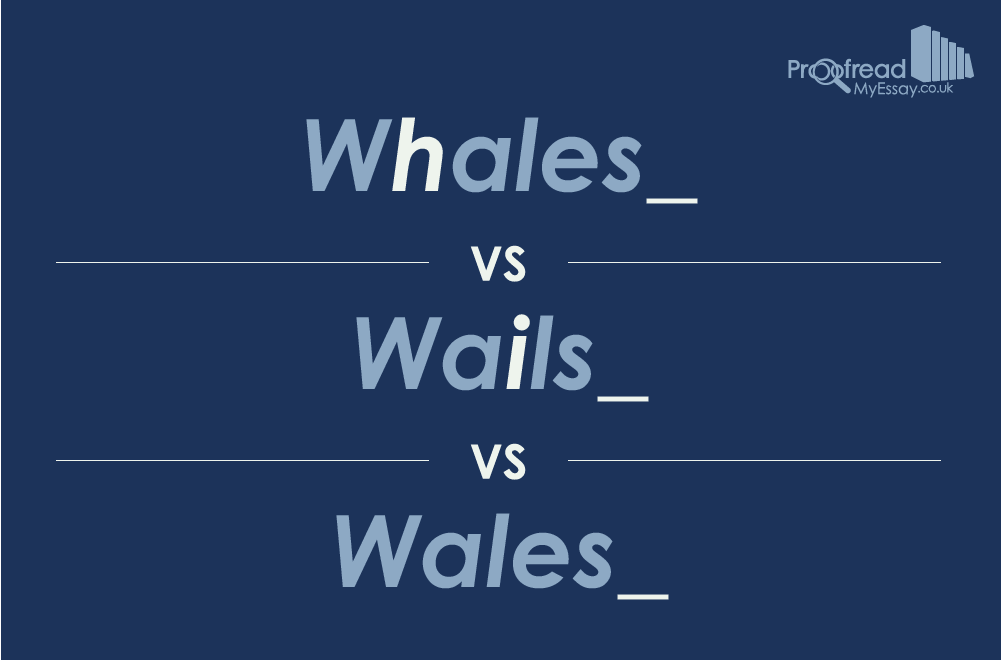One is a country with an apparent vowel shortage, one is a large aquatic mammal, and the other is a cry of despair. But do you know the difference between ‘whales’, ‘wails’ and ‘Wales’?
The capitalisation above should be a giveaway to one of these, but since you won’t want to confuse them in your work, we’ve prepared this quick guide.
Whale (Marine Mammal)
A ‘whale’ is a marine mammal, sort of like a big bear that spent so long in the sea it lost its legs and fur. What? We’re proofreaders, not marine zoologists. They look like this, anyway.
Oddly, one of the world’s most famous whales, the one from the Free Willy movies, is actually more like a big, angry dolphin (as previously mentioned, zoology isn’t our speciality).
A second use of ‘whale’ is as a verb meaning ‘beat’ or ‘hit’, especially when we say that somebody is ‘whaling on’ something:
Excited to be in the band, Andy whaled on the drums until they broke!
This isn’t a common sense of ‘whale’ any more, but it’s worth remembering because people sometimes mistakenly write ‘wail on’ when they mean ‘whale on’.
Wail (Cry or Scream)
To ‘wail’ is to cry inarticulately, usually in despair, grief or pain:
From his wailing you’d think he was dying, but it was just be a bee sting.
A second use of ‘wail’ that you’re not too likely to encounter outside of a jazz club is ‘to perform exceptionally well’, such as in:
Have you heard Bud Powell wailing at the piano? That hepcat can really play!
Find this useful?
Subscribe to our newsletter and get writing tips from our editors straight to your inbox.
We’re pretty sure actual jazz musicians don’t speak like that, but most of what we know about the topic comes from watching Disney’s The Aristocats, so we have a very limited frame of reference.
Wales (Part of the United Kingdom)
Finally, in case you hadn’t worked it out by now, ‘Wales’ is a country in the United Kingdom, just to the west of England, but with a much cooler flag featuring a dragon:
I love folk music, so I’m going to an eisteddfod in Wales later this year.
However, ‘wale’ also has a lesser-known alternative meaning of ‘raised ridge’, simultaneously covering welts on the skin (such as those left by a whip), a vertical row of stitches and the wooden ridges used to protect part of a ship (like a ‘gunwale’).
The thing to remember here is that while ‘Wales’ is a proper noun, and so always capitalised, these other sense of ‘wale’ are common nouns, so only capitalised at the start of a sentence.
More flags should feature mythical beasts, in our opinion.Whales, Wails or Wales?
‘Whales’, ‘wails’ and ‘Wales’ all have very distinct meanings, so you shouldn’t get them mixed up once you know what they mean! The key is spelling them correctly. Remember:
Whale = A large marine mammal
Wail = An inarticulate cry
Wales = Part of the UK
